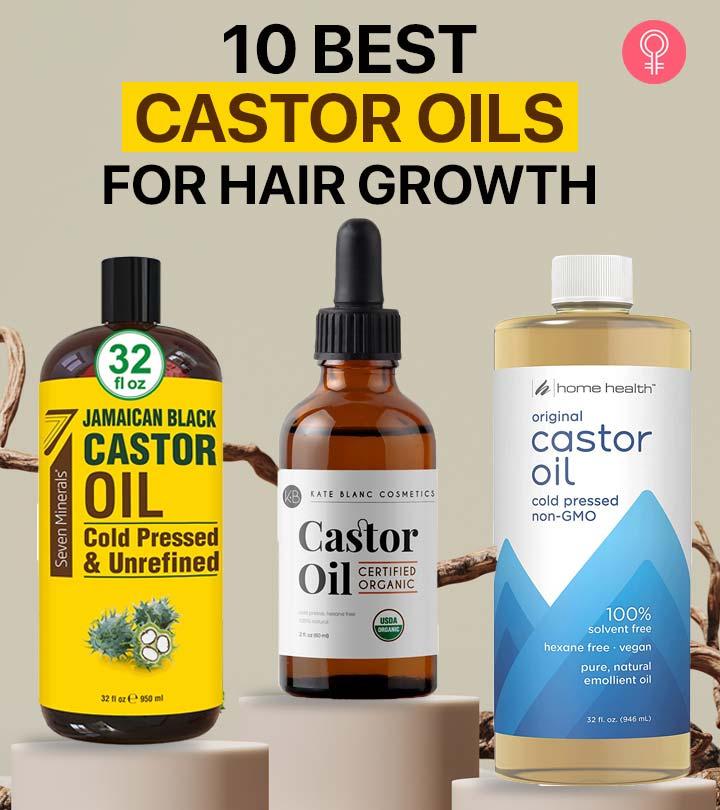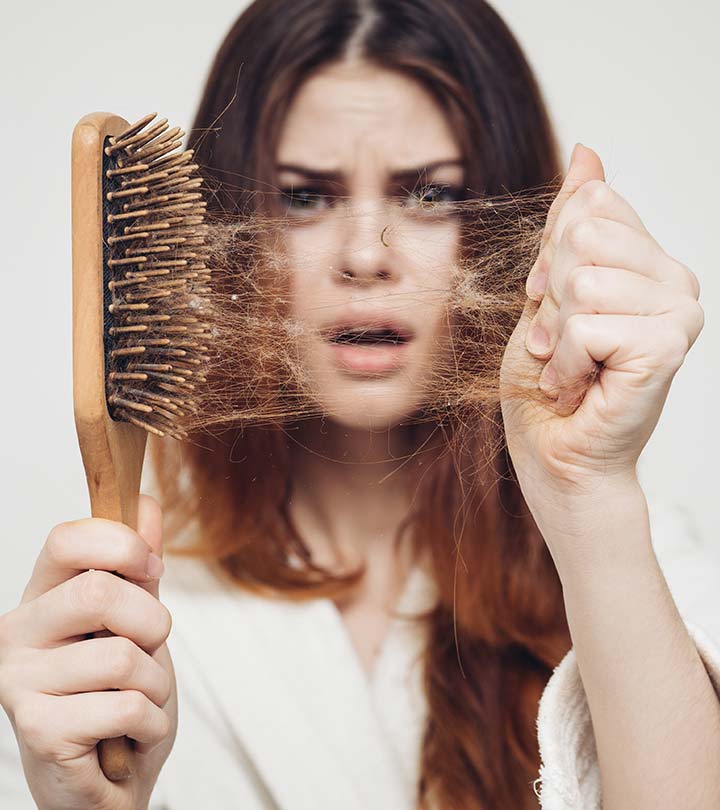Table Of Content

Because of this, and the chance of contracting allergic dermatitis, Dr. Amin advises to apply only a small amount on a hidden area of skin (a DIY patch test) before using castor oil all over your head. Remember that your hair may require two applications of shampoo to remove the castor oil completely. Castor oil should not cause these side effects when applied to your hair. However, you'll want to ensure you or others in your home do not accidentally swallow the castor oil.
responses to “How to Use Castor Oil for Hair (Grow Beautiful Hair Fast)”
This refugee-founded company is particularly popular among women with curly hair, several of whom write that this conditioner keeps their curls defined, bouncy, and healthy. Castor oil is a nutrient-dense oil extracted from pressed seeds of the castor oil plant Ricinus communis, which is mainly grown in India, South America, Africa, and China. The produced oil typically has a pale-yellow or almost colorless appearance with a subtle mild scent.
Can Castor Oil Really Make Your Hair Grow? Experts Explain
She regularly tests and analyzes hair products for efficacy, while working with the industry’s top trichologists and hairstylists to assess new formulas and brands. For a more customized treatment, you can mix castor oil with other carrier oils, like jojoba oil or coconut oil, to help dilute it and thin the consistency, suggests Burrell, which will make it easier to use, even on fine hair. On the other hand, if you want a richer formula, mix castor oil with olive oil for a major deep-conditioning hair treatment (definitely skip this one on fine or low-porosity hair, though). FWIW, rosemary oil has also been studied for hair growth and loss, showing promising results (but more research def needs to be done on humans to prove anything). Dr. Cheung pointed to a 2015 study that compared rosemary oil extract to minoxidil when used on men with genetic androgen-related hair loss and the effects at three and six months had very few differences. Patients also noticed less irritation and itchiness with rosemary oil, since it's naturally anti-inflammatory.

Choosing a product
The first thing you should know about castor oil that is you don’t need to apply a ton of it to see results, so it's okay to use it sparingly. You also don’t need to use castor oil every day, as Ruggeri notes that it's best to be applied on a weekly basis. Beth Gillette is the beauty editor at Cosmopolitan, where she covers skincare, makeup, hair, nails, and more across digital and print.
Does it actually increase hair growth?

A friend of mine was struggling with postpartum hair loss and even once her hair loss slowed, regrowing her hair was difficult. Dr. Garshick points out that although castor oil can be used by all hair types, it is especially good for those with dry hair. But the condition of your scalp plays an important role when deciding to use castor oil on your hair or not. (It specifically causes a change in the reflection of your hair strands, Dr. Bailey says.) However, it can make your hair mat up, which is why Dr. Bailey recommends diluting it with coconut oil and using it as a hair treatment. Then, massage it on your hair, comb it through, and let it sit for a few hours. (You can wear a shower cap to protect your clothes or sheets.) Then, rinse thoroughly.
Featured Articles
Castor oil coats the hair shaft and keeps external moisture out, which is key to reducing frizz. Castor oil is a very thick oil, so it is important to use a small amount. To prevent thinning and damage from everyday styling, Korab also recommends using a heat protectant. You'll also need to use it before it reaches the end of its shelf life. Once opened, castor oil will start to go rancid after about one year.
There are many different ingredients that you can mix with castor oil to create a scalp treatment. Tea tree oil is a natural anti-fungal and anti-bacterial agent, and it is often used to treat scalp problems such as dandruff and scalp fungus. Olive oil is a natural moisturizer, and it can help to keep your scalp healthy and hydrated.
Meet the Experts
All products featured on Glamour are independently selected by our editors. However, when you buy something through our retail links, we may earn an affiliate commission. Castor oil is approved by the FDA as a temporary treatment for constipation, but it isn't suitable for long-term use.
It is a thick, viscous oil that is rich in fatty acids, minerals, and vitamins. Castor oil is said to promote hair growth, thicken hair, and reduce hair loss. It is also said to be effective in treating scalp issues such as dandruff, dry scalp, and scalp infections. We spoke to a panel of hair pros to find out jojoba oil's benefits, when you should apply it, how long to leave it on, and learn their top picks for jojoba oil-infused products. “Jojoba oil offers numerous benefits for hair health because it’s able to penetrate deeply into the hair follicles to moisturize and nourish the strands from within,” says Philip B, founder of Philip B hair care. The results, he says, are that jojoba oil helps to hydrate dry hair, improve elasticity, reduce frizz, and promote overall hair health.
How to Use Rosemary Oil for Hair Growth According to Expert Derms - Cosmopolitan
How to Use Rosemary Oil for Hair Growth According to Expert Derms.
Posted: Fri, 26 Jan 2024 08:00:00 GMT [source]
It can be an effective moisturizer for your skin and hair, especially if you need a fast dryness fix. Just know that there isn’t a lot of scientific evidence backing up all the promises out there, including hair and eyelash growth. Plus the thick oil can clog pores and cause acne if you break out easily. That’s why Dr. Chiu recommends checking in with a dermatologist before you start slathering it all over yourself if you can—#skintok has a lot of big ideas, but it isn’t always right. For a gentle scalp treatment, combine castor oil with olive oil, grapeseed oil, coconut oil, and vitamin E oils in an applicator bottle every night before bed or just whenever your scalp feels itchy or dry.
Antioxidants keep free radicals from damaging the body's healthy cells. This destructive process is called oxidative stress, and it's linked to many health effects, including hair loss. Regarding jojoba oil in particular, experts agree that this naturally derived oil can have amazing benefits for hair (as well as skin, FYI). “Jojoba oil has been used for centuries for its various skin-care and hair-care benefits due to its similarity to the natural oils produced by the skin and scalp,” says Camille Friend, celebrity hairstylist for Prose. If you don’t have the patience to leave it overnight—or your scalp tends to be oil-prone—try hair oiling as a pre-shampoo treatment. Simply leave your hair oil on for at least 30 minutes, up to an hour, before shampooing and conditioning your hair as usual.

No comments:
Post a Comment